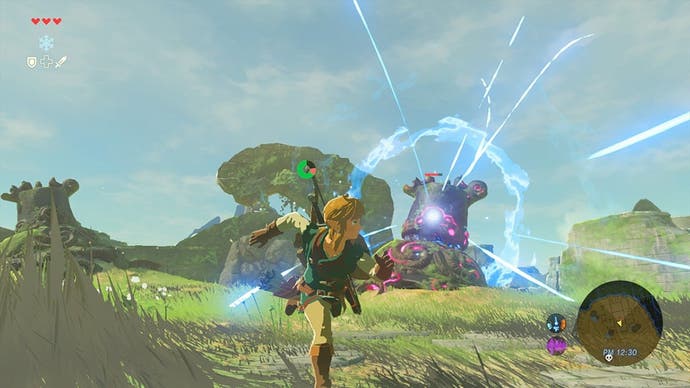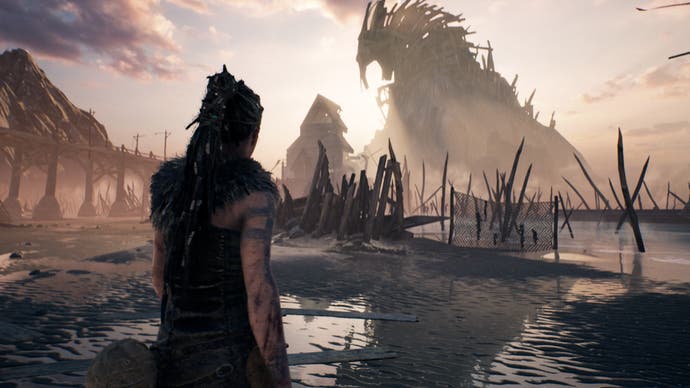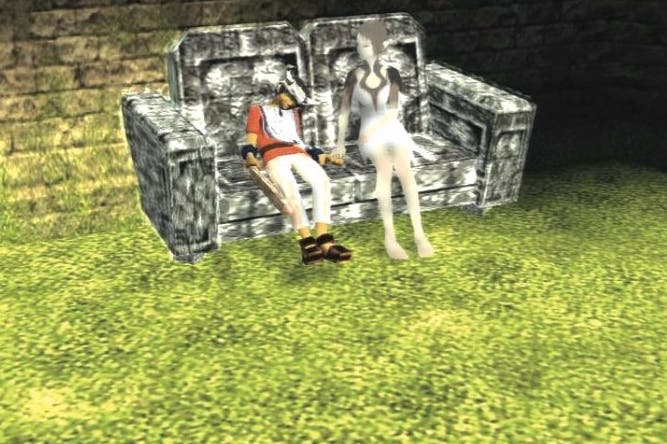In praise of bad game design
Taking the rough with the smooth.
There is a certain language we too often use around video games, a particular body of criteria and expectations. You could call it the cult of smoothness. This is, I'll admit, more of a characterisation born of years spent trawling forums than it is some kind of scientific appraisal, but glance over the average review comments thread and you might know what I mean. It's the idea that an excellent game is, fundamentally, a game that knows how to get out of your way. This is the language of “polish” and “seamless” integration, of beautifully chiming ludic and narrative components, of vast realms in which you are never truly lost, and campaigns that "peak" and "trough" considerately, setting up a tempo of crises and revelations without ever seriously jolting you.
It's the language of open worlders at their most sprawling yet navigable - games like Far Cry 4, where you don't so much explore as allow yourself to be blown about, drawn through the landscape by a magic alchemy of sightlines, surface tones and the quiet delight of variables interacting. It's the language of "flow", that intensely problematic state of indefinite, uncritical absorption when task, feedback and skill level are in perfect harmony, and of environmental storytelling, whereby insights are always to be scooped up in passing - to actually require that the player stop and digest a cutscene or piece of text, as in the more venerable Elder Scrolls titles, has come to be regarded as the height of impertinence.

Above all, this loose ethic rests on the idea that the player should always feel detached - always able to make the critical decisions, form judgements and enjoy the experience at their own pace, over and above any specific concepts or values the developer might wish to impart. The game shouldn't make a mark on you, in other words. It shouldn't intrude. It may test your reflexes, your memory or your capacity to identify abstract patterns, but its essential structures should leave you essentially unaltered, unmoved. You should feel free to manipulate the game without fear of being touched by it, weighed upon in turn. The designer's job is less to express something than to ensure that your choices are articulated and reflected as sinuously as possible, within the parameters of a genre or other broad interpretative framework. This is what senior producers mean when they rhapsodise about rewarding your "playstyle", ensuring a frictionless segue between a game's various tiers and components, dependent on your tastes or abilities. Real intrigue is a bump in the road, to be steam-rolled flat in the name of customer satisfaction.
Before I continue this ludicrously baggy portrayal of an entire medium and community, I should add that I've sung the praises of many games using exactly the terminology above, and that the games that tick these boxes are often works of immense care and cleverness - if sometimes produced in deeply toxic conditions. It's obviously necessary to establish some level of readability if games are to be experienced at all, and who could say no to another tour of Breath of the Wild's spellbound frontier, with its ever-retreating play of cloud and sunlight, its stones that simply can't be left unturned? But it's important, given its prevalence, to remember this ethic of supreme pliancy for what it is: a form of corporate conservatism that views - or rather, would have you view - the video game as apolitical product, a set of ostensibly "neutral" recreational functions that, on the contrary, speak to and reinforce a particular worldview. And it's important to reiterate that there are other ways to think about and praise games, even those that style themselves works of entertainment rather than art, a distinction that is too often invoked to shut down discussion of any title that isn't a gamejam walking simulator on Itch.io. Consider DOOM 2016, a playable Book of Revelations which doubles as a commentary on the art and business of DOOM's own rehabilitation, or Blizzard's complex, clumsy stabs at re-imagining gender roles and racial archetypes in Overwatch. These are games that, notwithstanding their painstakingly revised and focus-tested elegance of design, demand to be embraced for the ways they impose on you, fail to satisfy or leave you wondering.
The notion that a game is ever really able to “get out of your way” is, for one thing, a bit of a fantasy. Consider the outrage over Earthlight VR design lead Jennifer Scheurle's recent Twitter thread on the hidden devices designers employ to make games more entertaining - the fact that Half-Life 2's bullets seek out fun (i.e. explosive) things to hit when you miss, for instance, or the way some first-person horror titles slow down attackers when you're facing away from them. Many of the negative responses focused on the idea that such strategies make the game too easy or unfair, but the underlying complaint, I think, is of not having full knowledge of or power over the simulation, the view that the player is being "cheated" of their rightful agency, “played upon”. As Scheurle and other designers subsequently remarked, few of the players in question seriously want this level of control - they want to be thrilled and diverted, and being thrilled and diverted means yielding freedom to the designer. Reflect a little and you might realise that many vaunted “choice-driven” games are, in fact, extraordinarily limiting: their skill consists not in sating your desire for agency, but in how they persuade you that you're making meaningful decisions when all you are doing is picking the order in which you complete objectives, unlock content or expose map regions. Go in "all guns blazing", or "sneak down the flank"? Conquer every last outpost, or just those you need to reach the endgame? These quandaries may divert you, and they may take great insight to engineer, but they are hardly searching.

Moreover, to harp on the pre-eminence of freedom is to risk burying those games that shine or at least, stand apart precisely because they cut you short or frustrate you, because they strive for something more than a nice “feel”, an obliging flexibility of structure or plain transparency. The artform's history is sprinkled with such moments of irreconcilability. Look at Hellblade, a rather gauche, bruising fantasy about psychosis in which the growing threat of permadeath (illusory or not) turns Game-Over into a form of characterisation, representing the erosion of inner resources. Bloober Team's recent Observer, meanwhile, could be held up as a sumptuous but unadventurous specimen of environmental storytelling, were it not for certain intriguing quirks of HUD design. As you rove its fissured and creaking cyberpunk apartment block, your character's eye implants restlessly scan and annotate your surroundings; sometimes, they'll call attention to something you can interact with, but mostly, the HUD will isolate objects only to dismiss them, scribbling "Ignored" in square brackets across the air. Your eye is forever being drawn to things that are immediately deemed unworthy of your regard. It creates a suspenseful, dysfunctional blankness at the heart of a rich forensic experience. Just what exactly is being written out, and do you really trust the interface to make that call? Bloober Team never quite lets on.
In a similar vein, there are ICO's sofas. Fumito Ueda's reputation-making endeavour is one of those vaunted "sense of place" games, an exquisitely dilapidated castle where you'll linger over the murmur of water or the whistle of wind through the battlements, but its savegame mechanisms are weirdly ambivalent, jarring echoes of the player's own presence - they require you to plonk Ico and Yorda down much as you are yourself presumably seated, facing the screen. This isn't quite an exercise in “breaking the fourth wall”, because Ico is a fairytale rather than a work of brittle realism, but it certainly complicates the game's representation. Those sofas are actively indecipherable, at once inside and outside the fantasy, as enigmatic as the long look Yorda and Ico sometimes exchange whenever you leave them idle. I experienced much the same emotions while playing Ciara Burkett's recent micro-game, We Walk The Dirt Sea, which tantalises with the suggestion of an epic journey through a vast, bleached waste populated by watchful geometric spectres, only to end on its own title screen. It's a game that turns illegibility and a refusal to deliver into a source of confusing power.
I'm not, I think, saying anything that hasn't been said many times before. But all the same, I think we could do more as a community to prize such experiences - games that decline to add up neatly into tidy and quiescent packages of mechanics, narrative beats and rewards, sustained by the daydream of unconstrained capacity to act. Or at the very least, that we stop policing their existence so vehemently. Escapism doesn't have to mean giving yourself over to a form of market-sanctioned megalomania in which virtual realms fall open readily before you, even as they discreetly guide your steps. It can also mean subjecting yourself to peculiar pressures and constraints, to oddities and upsets you'd otherwise have little idea of - challenges that are designed to instruct rather than merely gratify.









